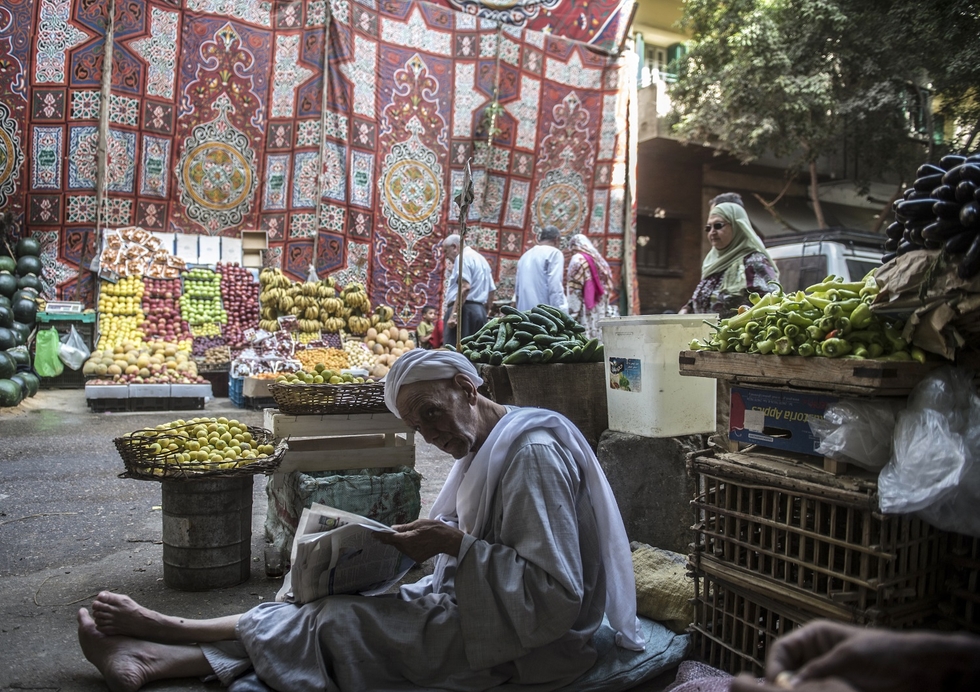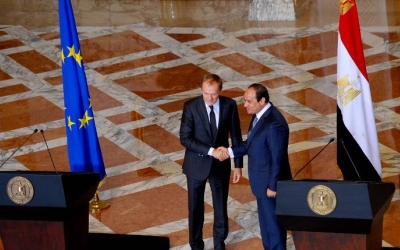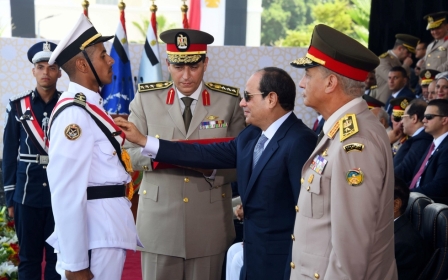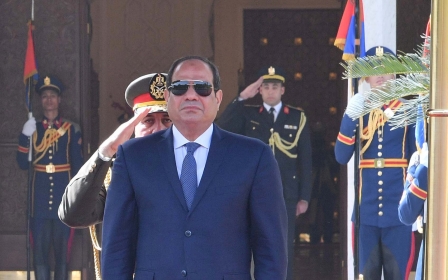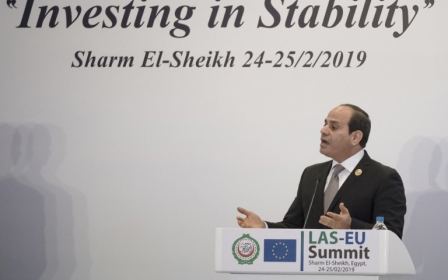Egypt is staring into an economic abyss that could take generations to reverse
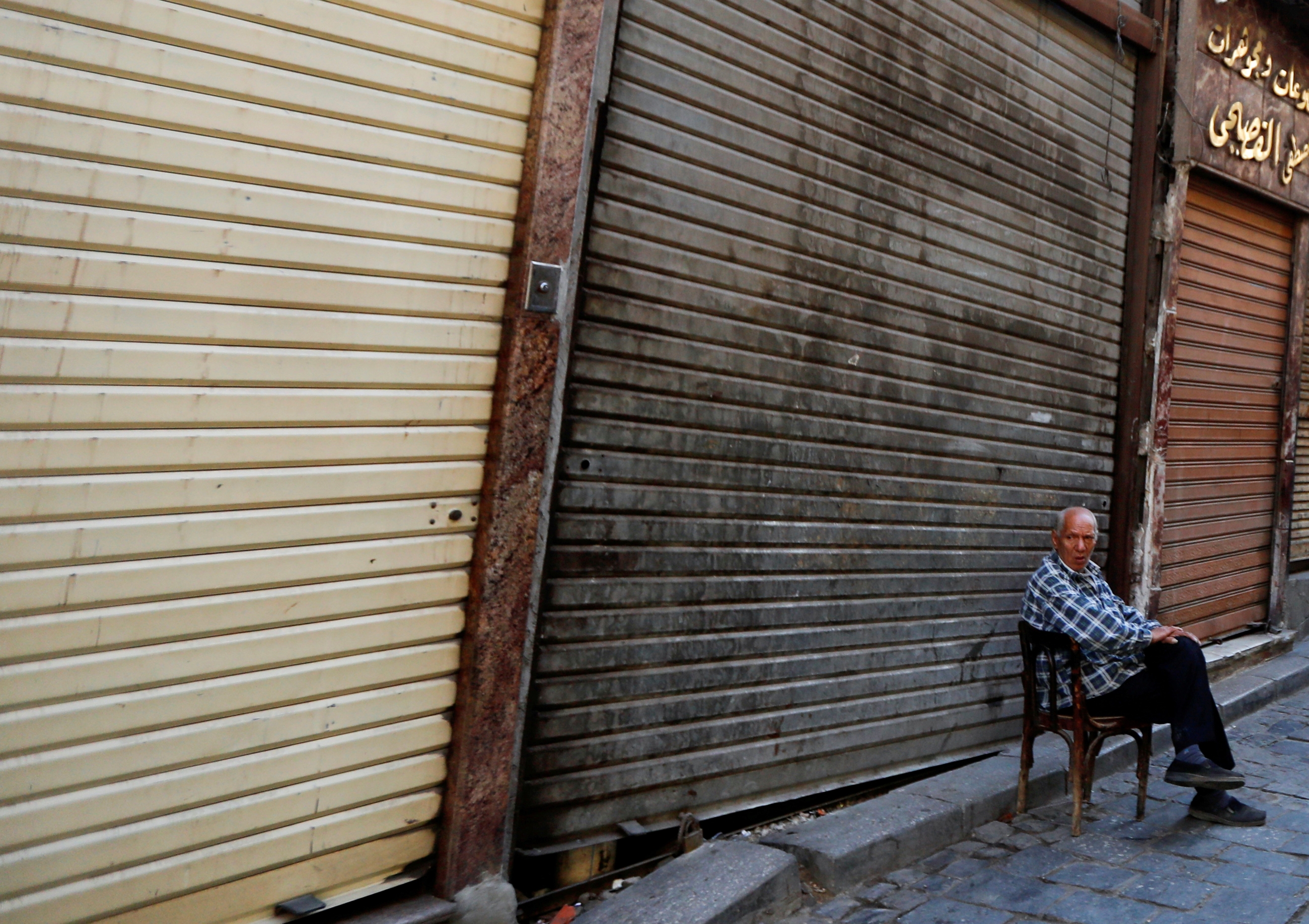
In 2008, the future for Egypt looked bright. In the coffee houses of Cairo, conversation revolved around the strength of the economy.
Since 2004, it had been improving year on year, and by 2008, average annual GDP growth had reached 7 percent. Egypt was officially one of the Middle East’s fastest-growing economies.
Staring into the abyss
Eleven years on, that same economy stares into the abyss. We now face the very real and stark possibility that the country’s economy will implode, drowning in huge sovereign debt and outrageous public vanity projects.
The effect will be catastrophic, not only for Egypt, but for her regional neighbours and also Europe in the form of huge swaths of migration that would occur should the economy fail.
For some sense of what that might look like, one only has to look to Libya and the crisis caused by its failure. The difference is that Egypt’s population is more than 10 times that of its neighbour.
We now face the very real and stark possibility that Egypt's economy will implode, drowning in huge sovereign debt and outrageous public vanity projects
In 2008 all seemed to be well in the Egyptian economy. But there were warning signs that are manifesting today. Crucially, the economy was skewed heavily in favour of tourism and oil revenues.
At its peak in 2010 the tourism sector employed 12 percent of Egypt’s workforce, providing approxmately $12.5bn revenue, while the productive, industrial economy remained hopelessly underdeveloped.
On top of this, the middle class - a chief driver of any economy - has endured an economy hopelessly skewed towards a military elite.
Projecting power
The standard of living in Egypt today is worse than it was in 2008. The middle class is shrinking rapidly, and soon will be all but erased. According to a recent report on household income and expenditure, the proportion of people below the poverty line - living below $2.50 per day - rose from 27.8 percent in 2015 to about 30 percent in 2018.
Since President Sisi seized power, his approach to economic development has been, at best, naive and at worse, reckless.
Rather than make the changes necessary to support industrial growth and a productive workforce, he has instead poured money into vanity projects with the ultimate aim of "projecting power" or "creating jobs". In the meantime, resources to the ailing health and education sectors have dried up.
Those efforts at job creation amount only to exorbitant infrastructure "megaprojects". In 2014, Sisi invested $8bn in the expansion of the Suez Canal Corridor. Egyptian officials made staggering promises, claiming that the expansion would more than double annual revenue, raising it from $5.5bn in 2014 to $13.5bn by 2023.
Yet this had no grounding in reality.
Now the public finances are saddled with the creation of a $45bn new administrative capital - the exact cost has conveniently been omitted from the government budget.
Gross mishandling
Sisi’s gross mishandling of one of Africa’s largest economies goes beyond the mere misallocation of resources. It is very clear that his understanding of even the most basic principles of economics is alarmingly poor - hardly a surprise when his closest political allies are other military men with scant economic experience.
He has devalued the Egyptian pound to such an extent that the country would need to triple its exports simply to make the same amount of hard currency it did before. Needless to say this hasn’t happened. And now the cogs of the economy are grinding to a dysfunctional crawl.
So freely has Sisi borrowed and spent that Egypt is now crushed under the weight of public debt, the most in its history
So freely has Sisi borrowed and spent that Egypt is now crushed under the weight of public debt, the highest in its history. The public debt has risen fivefold in the last five years and is expected to continue to rise in the foreseeable future.
It has become impossible for the government to meet even the most basic needs of its people. Sisi has said publicly that the government has no money, and a full third of the budget is allotted to pay interest on this debt.
In such torrid circumstances it is impossible to spend in a way that benefits society or the economy in the long term. Even the remnants of the welfare system still in place when Sisi assumed power were promptly done away with when the IMF came knocking.
Behind every economic collapse is a human cost. A generation of young Egyptians now face a job market devoid of opportunities and infected with the cancer of nepotism and corruption.
Petrol and bread prices have spiked after the removal of subsidies, made doubly worse by crippling inflation
Obsession with the military
If there is a root of Sisi’s chronic mishandling of Egyptian finances, it lies in his obsession with the military. The Armed Forces have a grip on business that dwarfs even the protectionist racket that flourished under Mubarak.
Today, the military’s slice of the Egyptian economy has risen inexorably. Transparency International has suggested the figure could be as high as 60 percent. Entrepreneurialism is non-existent. Competition and a free market have been suffocated by a mafioso system of patronage.
It is plain to see that this economic disarray is caused by a collapse in political accountability. Foreign leaders, sure that in the shape of Sisi they have a firm hand on the tiller, a leader who "fights terrorism" and keeps stability in the Middle East, have turned a blind eye to the realities of a regime that acts as an economic vandal, one that bludgeons enterprise in the name of shallow strongman politics.
To ignore the political situation is to condemn an economy with so much promise to failure. The human cost is unimaginable and change can only come from an Egyptian political leadership dedicated to enterprise and industry, not protecting personal profit at any cost.
Egypt is staring into an economic abyss that could take generations to reverse. The tragedy is that it is caused by deliberate political thuggery, not economic misfortune. The solution starts with politics, not visa versa.
The views expressed in this article belong to the author and do not necessarily reflect the editorial policy of Middle East Eye.
Middle East Eye propose une couverture et une analyse indépendantes et incomparables du Moyen-Orient, de l’Afrique du Nord et d’autres régions du monde. Pour en savoir plus sur la reprise de ce contenu et les frais qui s’appliquent, veuillez remplir ce formulaire [en anglais]. Pour en savoir plus sur MEE, cliquez ici [en anglais].



